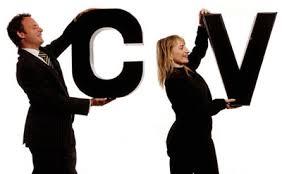What information should I include on my CV?
Personal Details: Before you start you have to ensure that if selected the employer has a way to get in touch with you. Start by writing down your name, email, contact phone number and address. Make sure these are clearly marked at the top of your CV. Any other details that can easy the proces of contacing you must be included.
Personal Statement: Although optional, it will look professional and serious if you include a personal statement in your CV. This statementis a good opportunity to tell the employer about your suitability for the job. Don't forget, keep it short and demonstrate your enthusiasm and commitment to the role and the company.
Work Experience: This section includes any work experience that you have in the field you are applying for. When listing these work experiences include your job title, time in the post, responsibilities and the name of your organisation. Remember to list your most recent role first. Many people don't pay attention to the duties part. Employers tend to read these at most. Put yourself in the employers shoes. If you are hiring you would like to see what were the candidate's duties like in their previous job andweather they will suit your role. Many employers determine suitability based on on the previous experience and the duties give the extra step on the skills and weather that particular candidate has the skills.
Achievements/Qualifications: List relevant skills and achievements from previous jobs, giving clear examples of how you would apply these to the new role. Qualifications also can be very advantagous. Many people forget to list in their CV if they drive, believe it or not driving licanse is in a way a qualification. NVQ courses of QCF courses, qualifications, languiage courses are all things that can qualify you for the job and must be listed.
Education: List formal qualifications and any training undertaken, either independently or during previous periods of employment.
Hobbies and Interests: Only include if the skills or teamwork concerned are relevant for the job. There is no point listing that you’re sociable or that you enjoy going to the cinema for the sake of it. Some HR managers like to see that your hobbies and interests are similar to those in their company. Often times brainstorming groups go our of the company setting to do something associated with their hobbies while they brainstorm or do a meeting. If you say all the time that you are not up for it, that alone will not make you part of the team. So hobbies and interestes can be helpful.
Any extra information, such as reasons for a career change or reasons for gaps in career history should be added as required.
How to present your CV
Remember, your CV is a reflection of yourself, so it's important that it's well laid out and looks professional.
- Keep it short enough to read quickly and ideally no more than two sides of A4;
- Choose a clear, professional font to ensure that your CV can be easily read;
- Be clearly laid out in a logical order, with sufficient spacing and clear section headings (work experience, education);
- Avoid typing mistakes at all costs. A simple spell check is not enough: ask someone else to proof read your finished CV;
- Order your experience and education into reverse chronological order to highlight your most recent experience and achievements
Once you’re happy with how your CV looks, make sure you’re happy with the content. And highlight that you're the right match for the job by outlining:
If you don't already have a CV or you'd like to start again, you can create a professional, fully formatted CV in minutes using the following CVs.

